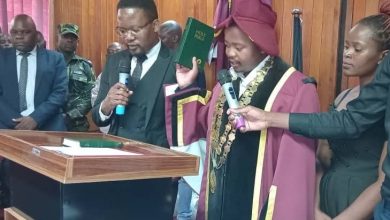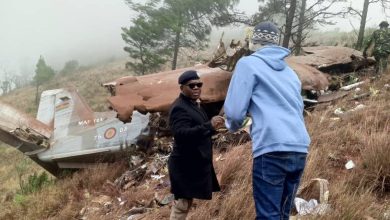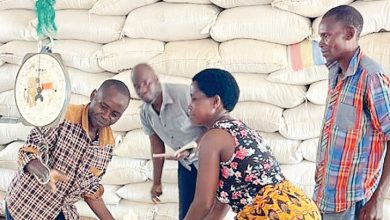Movement for women’s safe political environment
This is the second week after the Malawi Electoral Commission (MEC) officially launched the 60-day official campaign period for the September 16 General Election with a call for candidates and political parties to focus on real issues affecting the citizenry and not personalities. In this interview, News Analyst LUCKY MKANDAWIRE speaks to Women’s Legal Resources Centre (Wolrec) executive director Maggie Kathewera-Banda on key expectations of the Women’s Manifesto Movement (WMM) which is championed by Wolrec, Oxfam in Malawi, UN Women, NGO-Gender Coordination Network, Centre for Civil Society Strengthening and other stakeholders. Excerpts:

Briefly explain about the Women’s Manifesto Movement?
The Women’s Manifesto Movement is a collective platform of diverse women’s rights organisations, activists, and advocates across Malawi, committed to advancing gender equality and women’s empowerment. The Movement seeks to amplify the voices of women in governance and decision-making processes by articulating their shared priorities and demands in a unified manifesto. It is a space for solidarity and action, pushing for inclusive governance that reflects the lived realities and aspirations of Malawian women. Currently, it is being funded by UK Government’s Foreign Commonwealth and Development Office (FCDO), European Union and Iceland Embassy, through various projects implemented by the partner organisations.
How does the movement plan to ensure that women’s rights and issues are prioritised by candidates and political parties’ manifestos and campaign messages?
We are engaging political parties and candidates directly by presenting them with the Women’s Manifesto and urging them to incorporate its key demands into their platforms. We are also organising public debates, dialogues, and policy roundtables where women’s rights issues are put on the agenda. Through media campaigns and grassroots mobilisation, we are creating public pressure to make women’s issues central to campaign narratives.
What specific policy commitments are you expecting from the political parties as well as the candidates in line with the Women’s Manifesto?
We expect political parties and candidates to commit to policies that promote women’s full participation in politics and decision-making, the protection of women from gender-based violence including intimate partner violence, economic empowerment through access to land, finance and markets, improved access to quality health and education services for women and girls, and gender-responsive budgeting. We also want clear timelines and implementation plans for these commitments.
What strategies is the WMM putting in place to track and hold candidates accountable to their campaign promises on women’s empowerment?
We are establishing a robust monitoring and accountability framework. This includes a public scorecard that will track candidates’ commitments, periodic reviews, and follow-up engagements post-elections. The presidential candidates are also signing commitment cards symbolizing their commitment to promoting women’s rights and integration of gender concerns into national development plans. In addition, through partnerships with the media and civil society, we will ensure these promises remain in the public eye beyond the elections.
How does the movement plan to engage women voters during the campaign period and what are you urging them to demand from candidates?
We are conducting civic and voter education targeting women, using both community platforms and digital tools to reach diverse audiences. Our message to women is clear: your vote is your power. We urge women to engage candidates, ask tough questions, and demand clear, actionable commitments on issues affecting them. We are encouraging women who form the majority of registered voters, not just to vote, but to vote with an agenda—an agenda informed by the Women’s Manifesto.
What is your message to the Malawi Electoral Commission and other stakeholders to ensure a peaceful, inclusive, and gender-sensitive campaign period?
We urge the Malawi Electoral Commission to ensure that all electoral processes are gender-responsive, including ensuring women candidates are protected from political violence and intimidation. We also call on security agencies, the media, and political parties to uphold democratic principles and foster a peaceful environment where women can fully participate. Inclusivity, fairness, and safety should be the foundation of this electoral season.
What is your call to action to all stakeholders during the election campaign period in relation to the Women’s Manifesto?
Our call to action is simple but urgent: centre women in this election. We call on political parties to adopt the Women’s Manifesto as a blueprint for inclusive development. We urge the media to give space to women’s voices and issues. We challenge voters to demand accountability. And we call on donors and civil society to support women’s participation and protection throughout the process. The time for symbolic inclusion is over, what we demand now is transformative change.





